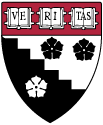About

A Brief History of ScratchEd
by Karen BrennanBack in 2007, much of the early use of the Scratch programming language and online community took place in homes and after-school settings, and many of the young people that I interacted with in those early days came from home environments that encouraged and supported creative explorations with technology. But, over time, a growing number of schools included Scratch in classroom activities. The adoption of tools like Scratch in schools is essential for broadening and diversifying the community of young people who can participate as computational creators.
Although the Scratch online community has a large and active membership, it was not designed primarily to support educators; it was designed for people who want to create and share projects, while educators are primarily concerned with helping other people create projects. The disparity between the design and teachers’ requirements came increasingly into focus when, shortly after joining the MIT Scratch Team in 2007 as a graduate student, I began to receive numerous emails from teachers. In these messages, teachers were sharing stories about their experiences with Scratch. They were requesting curricular resources—or offering to contribute resources that they had created. They were asking questions and offering to respond to others’ questions. They were looking for ways to connect with other nearby educators who were working with Scratch or had similar interests.
Based on these educator interests and motivated by the community of practice literature—a model in which teachers, as learners themselves, have access to peers, shared goals, and resources (Wenger, 1998; Barab, Barnett, & Squire, 2002)—I developed the ScratchEd site for educators. Teachers interested in or already actively working with Scratch were able to use ScratchEd to share stories, exchange resources, ask and answer questions, and find other educators. In designing the ScratchEd site, I was inspired and influenced by others’ work in online communities for educators, including Tapped In (Farooq, Schank, Harris, Fusco, & Schlager, 2007), KNOW (Brunvand, Fishman, & Marx, 2005), WIDE World (Wiske, Perkins, & Spicer, 2006), and Inquiry Learning Forum (Barab, MaKinster, & Scheckler, 2003).
ScratchEd made its public debut in the summer of 2009. In the following 10 years, during which I graduated from MIT and started as a faculty member at the Harvard Graduate School of Education, 27,169 educators from around the world joined the ScratchEd Online Community, and contributed 354 stories, 1,027 resources, and 4,749 discussion posts. From May 2009 until May 2019, the site received 10.35 million page views from 2.5 million unique visitors.
In response to changing technologies and needs, I decided in early 2019 to shift energy away from the ScratchEd Online Community toward other ways of supporting educators working with Scratch, like the Creative Computing Curriculum and Scratch Educator Meetups. To preserve all of the beautiful resources and ideas shared on ScratchEd, I have converted the site into a static archive. So, although it is no longer possible to join ScratchEd and contribute materials, the 10 years of ScratchEd content are still available for you to explore. When people shared their own content on the site, they agreed that others could freely use it, share it, or remix it for non-commercial purposes, as long as credit is given to the original creators (Creative Commons By-NC-SA license). As such, if you share someone else's content from this archive, please make sure to credit their work.
This project started as one of my MIT class projects and—through the support and work of many people—grew to become much larger than I could have ever imagined. Thanks to Jeff Hawson, for creating the first functional prototype and providing debugging support over the past decade; to OHO Interactive, for creating the ready-for-the-world version; and to MIT and HGSE IT staff, for ensuring that there was always a happy server from which to share ScratchEd. Thanks to Michelle Choi and Ashley Lee for working with me to get the community going, gathering the first stories and resources to share on the site, and developing strategies for encouraging others to share. Thanks to Willa Peragine and Alexa Kutler for being the ScratchEd stewards for several years each. Of course, enormous thanks to the many educators from all around the world who have visited and contributed to the community. I look forward to seeing and interacting with you in other places.
The ScratchEd Online Community was made possible through financial support from Mitch Resnick, who provided the initial funding to bring the ScratchEd vision to life, from the National Science Foundation through Grant No. 1019396, and from the Scratch Foundation and Siegel Family Endowment, who are incredible champions of teachers and of Scratch.
If you're interested in learning more about ScratchEd research and design, here is a small collection of additional readings:
- December 2007: Initial description of the ScratchEd Online Community, prepared as a class project.
- July 2008: First presentation of ScratchEd concept to teachers at the 2008 MIT Scratch conference.
- December 2008: Design document prepared for developers, detailing ScratchEd functionality.
- June 2009: Poster presented at CSCL 2009 in Rhodes, Greece.
- February 2013: Dissertation about structure and agency in programming, pages 42–45 introduce ScratchEd.
- July 2013: IEEE Computer article about ScratchEd.
- July 2015: Constructivist Foundations paper about how ScratchEd supports constructionist teaching.

